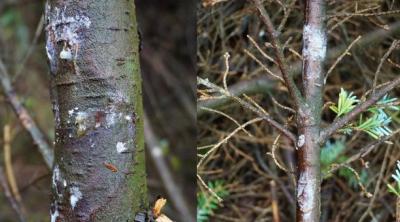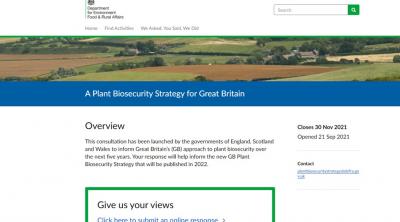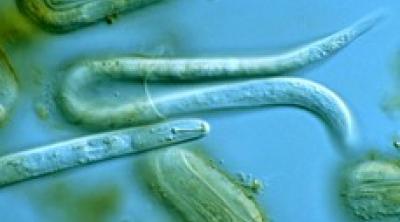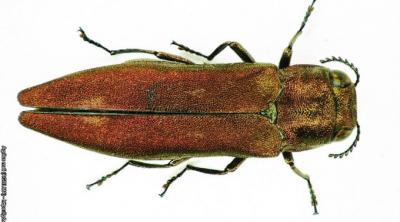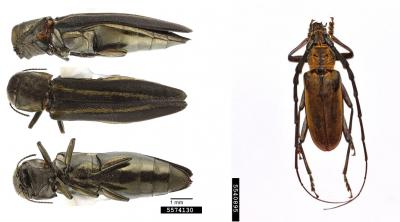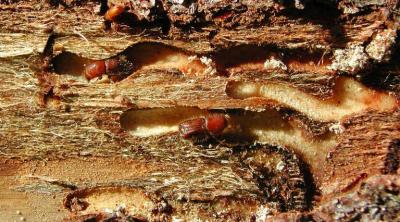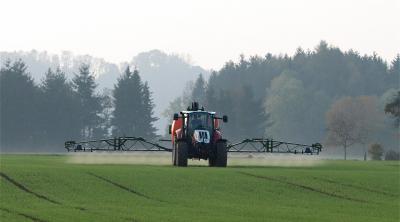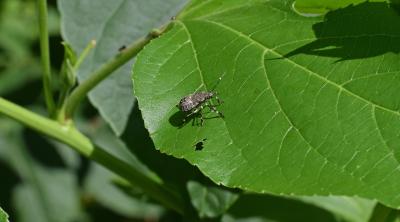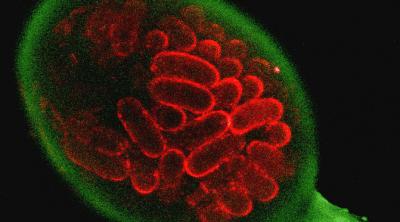News
Phytophthora pluvialis found in Cornwall
Forestry Commission are urging woodland managers, landowners, the forest industry and tree nurseries to remain vigilant after the tree pathogen Phytophthora pluvialis was found in a woodland in Cornwall.
Plant Biosecurity Strategy for Great Britain Consultation Launched
On the 21st September, Defra launched a consultation on behalf of the governments of England, Scotland and Wales to inform Great Britain’s approach to plant biosecurity over the next five years. The consultation closes on the 30th of November.
Changes to the Phytophthora ramorum Action Plan
There have been recent changes to the Phytophthora ramorum Action Plan. Follow the links in this article for more information on the actions to be taken in the three zones.
£2.2 Million new funding to safeguard Scotland's potato and bulb industries
The Scottish Government have committed £2.2 Million funding over 5 years for a project that will implement the recommendations of the PCN Working Group, which will be coordinated through the Plant Health Centre.
Agrilus mali (a pest of apple species in Asia) added to UK Pest Risk Register
Agrilus mali, a beetle pest, mainly affecting Malus species (apple trees) has been added to the UK Pest Risk Register. Currently only known to be present in parts of Asia.
Additions to the quarantine list, and wood importation restrictions
The oak longhorn beetle (Neocerambyx raddei) and two-lined chestnut borer (Agrilus bilineatus) are now on the GB quarantine list, and as a result new measures apply to importation of wood, wood chips, plants for planting and isolated bark from certain host plants (from specific thirs countries).
Eight-toothed spruce bark beetle (Ips typographus) - Vigilance urged
The Forestry Commission has recently urged that woodland managers, land owners and tree nurseries to remain vigilant after new breeding populations of the eight-toothed spruce bark beetle (Ips typographus) were identified in Kent.
Visit https://www.gov.uk/guidance/eight-toothed-european-spruce-bark-beetle-ips-typographus for information on identification and reporting of this pest.
Visit https://www.gov.uk/guidance/eight-toothed-european-spruce-bark-beetle-ips-typographus for information on identification and reporting of this pest.
Pesticide Withdrawal Presentation given by Prof. Fiona Burnett to Ministerial Workshop
The Plant Health Centre's Sector Lead for Agriculture, Prof. Fiona Burnett, delivered a presentation and led discussions on the potential impacts of pesticide withdrawals for Scotland's plant-based industries (and natural environment) at a ministerial workshop. [presentation slides attached to this article]
Scottish growers must remain vigilant about stink bug threat
Even if it has not yet been detected north of the border, Scottish growers must take adequate steps to monitor growing areas for the brown marmorated stink bug (Halyomorpha halys), a new potential threat to the UK’s agricultural, horticultural and forestry industries.
Potato industry under threat from soil infection pests
The Plant Health Centre have recently led a working group on behalf of Scottish Government to examine the threat to Scotland of Potato Cyst Nematode (PCN) as outlined at the Scottish Society for Crop Research (SSCR) potato Winter meeting. and recent media reports.

